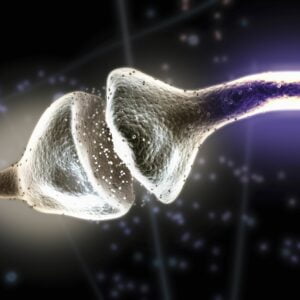Gabapentin is a medication that has been used for many years to help treat epilepsy, pain, and other medical conditions. It is also prescribed by some physicians as an off-label treatment for mental health disorders. Like depression, anxiety, and bipolar disorder. This blog post will talk about what gabapentin is; how it works; its effects on the brain and body; when you should stop taking it; what doctors think of this drug; and more!
Contents
What is Gabapentin?

Gabapentin is a drug that has been used for years to treat epilepsy and other neurological disorders. It works by modulating the release of neurotransmitters such as GABA (gamma-aminobutyric acid) in the brain. Thus, it directly affects mood and cognition.
If you find yourself experiencing anxiety or severe depression, your doctor may prescribe this medication to help you cope with the symptoms. It is also prescribed to those with bipolar disorder and in suitable medical conditions.
How Does Gabapentin Work?

Gabapentin reduces the number of neurons that are firing in your brain.
By doing so, this medication can help improve mood and cognition while also reducing anxiety or depression-related symptoms.
The neurotransmitter GABA is responsible for slowing down neuronal activity when it binds to its receptors found on nerve cells.
In other words, it reduces your brain’s response to stress and anxiety by blocking neurotransmitters. Such as glutamate, norepinephrine, dopamine, epinephrine (adrenaline), serotonin, and others from binding on receptor sites in the central nervous system.
Thus, the neurotransmitter GABA is responsible for slowing down neuronal activity. In this way, it decreases anxiety and stress levels to promote a sense of calmness throughout your body. It leads to improved moods, feelings of happiness or well-being, and relief from depression symptoms.
Gabapentin and Its Uses
Gabapentin is an anticonvulsant medication that was originally developed to treat epilepsy in the early 1990s. Since it works by slowing down nerve impulses throughout your central nervous system. Thus, gabapentin can be used off-label to treat different conditions such as:
Anxiety And Stress Disorders
Including generalized anxiety disorder (GAD), social anxiety disorder (SAD), and post-traumatic stress disorder (PTSD).
Depression And Bipolar Disorder
For individuals who do not respond to, or cannot tolerate antidepressant medications.
Neuropathic Pain
For individuals who find that conventional treatments are not effective in managing their symptoms of chronic nerve-related pain (neuropathy)
Opioid Withdrawal
To help reduce or prevent opioid withdrawal symptoms after stopping or reducing the use of opioids.
Postherpetic Neuralgia (PHN)
To help reduce the pain associated with shingles.
Side Effects Of Gabapentin
Healthy individuals show well-toleration for Gabapentin with few side effects, for short periods though. When it comes to its dosage levels or frequency that a physician recommends taking the medication. However, there are certain side effects that an individual may experience from gabapentin.
In rare instances, individuals can develop a severe allergic reaction to the medication. It includes hives and swelling of the face, lips, tongue as well as other parts of the body. In such cases, the patient should immediately seek medical attention for further guidance on how to proceed with treatment options.
In some cases, an individual may experience certain side effects such as:
- Headache
- Dizziness
- Nausea
- Vomiting
- Constipation
- Diarrhea
- Difficulty concentrating
- Memory problems
- Fatigue
- Weakness
- Irritability and agitation
- Tremors
- Muscle pain and stiffness
- Itchiness or skin rash
- Anxiety, Depression, Restlessness
- Slurred speech or other changes in the way your words sound when you speak
Gabapentin And Its Effect

On Brain
Gabapentin has little or no effect on the GABA levels found in your brain. Because it does not readily cross the blood-brain barrier.
It doesn’t interfere with normal brain activity and has few interactions with other medications.
However, it may affect an individual’s thinking abilities as well as judgment skills. Especially when used in high doses for prolonged periods. In some rare instances, gabapentin may also increase an individual’s risk of seizures.
On Other Organs
In some cases, gabapentin can also affect organs outside of the central nervous system and digestive tracts. Such as your kidneys or liver.
This drug is processed through the kidneys and excreted by the bladder. It means that it may accumulate in your body if you have impaired kidney function.
Gabapentin can also affect your liver. In some cases, if you have a pre-existing condition. Such as cirrhosis or hepatitis B and C infection.
Also, there may be an increased risk of developing additional neuropsychiatric symptoms due to the damage to this organ’s functions.
In some cases, an individual can experience certain physical side effects such as:
- Decreased appetite
- Hair loss (alopecia)
- Increased sweating
- Rash or hives
- Swelling
Gabapentin Dosage Recommendations & Administration
Your doctor will recommend the right dosage for you after assessing your symptoms, age, and overall health. It will be administered orally in three divided doses. However, it may also be taken once daily without titrating based on the condition.
When To Stop Administrating Gabapentin

Gabapentin is not recommended for long-term use. It’s generally prescribed for short periods to manage seizures, anxiety, depression, or neuropathic pain associated with other conditions. Such as diabetic peripheral neuropathy (DPN).
If you have been using this medication over a prolonged period and would like to discontinue the treatment. Then, you must seek advice from your physician on how they can help manage withdrawal symptoms effectively.
It’s also essential for individuals who are taking gabapentin at the same time as other medications or supplements to discuss with their medical practitioner if there have been any changes in mood, behavior, thoughts, or feelings. This is because there may be an increased risk of developing certain side effects such as suicidal ideation, aggression, and hostility.
Therefore, physicians advise not to stop the dosage of gabapentin suddenly. Hence, it is important to stop taking this medication under the supervision of your doctors or other medical providers.
If you are experiencing side effects while on gabapentin, call your physician immediately for instructions. Ask about how to manage them properly without stopping treatment entirely. Your doctor may suggest that you adjust your dose or switch medications to treat your condition.
NOTE: Even though gabapentin is not a narcotic or opioid-based medication like other treatments for anxiety such as Xanax (alprazolam). It can still be habit-forming potential to cause physical dependence which may result in withdrawal symptoms if abruptly stopped after extended use of this drug.
Physicians On Gabapentin
Most individuals show well-toleration for Gabapentin when taken for short periods at low doses. However, certain side effects may affect an individual’s quality of life after taking this medication.
It is important to consult your physician for further guidance on how to manage the experienced side effects effectively.
It’s also essential to continue following the prescribed dosage and administration schedule as advised by their medical practitioner. So that an individual does not develop tolerance or dependence issues over time.
Conclusion
Gabapentin works by altering the way nerve impulses work in your brain to help treat different conditions. Such as seizures, anxiety disorders, bipolar disorder, depression, neuropathic pain associated with other health conditions such as diabetic neuropathy.
It’s essential to continue following the prescribed dosage and administration schedule. So that an individual does not develop tolerance or dependence issues over time.
It’s also important for individuals who are taking gabapentin at the same time as other medications or supplements to consult their physician on how they can manage withdrawal symptoms effectively if they wish to stop taking this medication.
It is important to talk with your doctor about the side effects that you experience during treatment. Your physician may adjust the dosage or switch medications for you to continue getting relief from gabapentin.
As always, consulting a medical professional before administering medication prescribed by another health care provider will ensure the best results and safety precautions when it comes to medication.
For more information, please contact MantraCare. Anxiety is a common mental health condition characterized by persistent feelings of worry, fear, and apprehension. If you have any queries regarding Online Anxiety Counseling experienced therapists at MantraCare can help: Book a trial Anxiety therapy session


